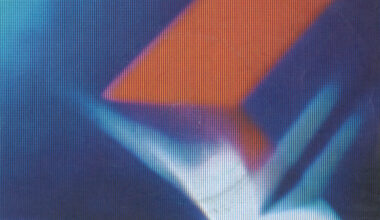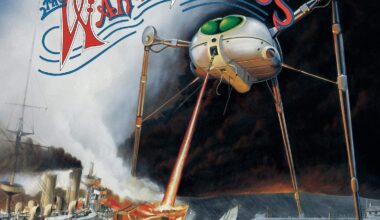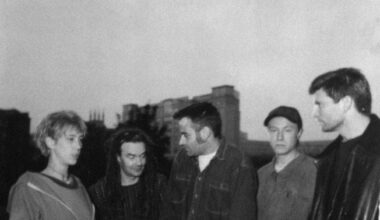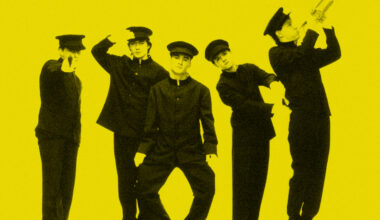Max Richter on the making of 2004’s ‘The Blue Notebooks’, his meditative masterwork of “quiet protest”
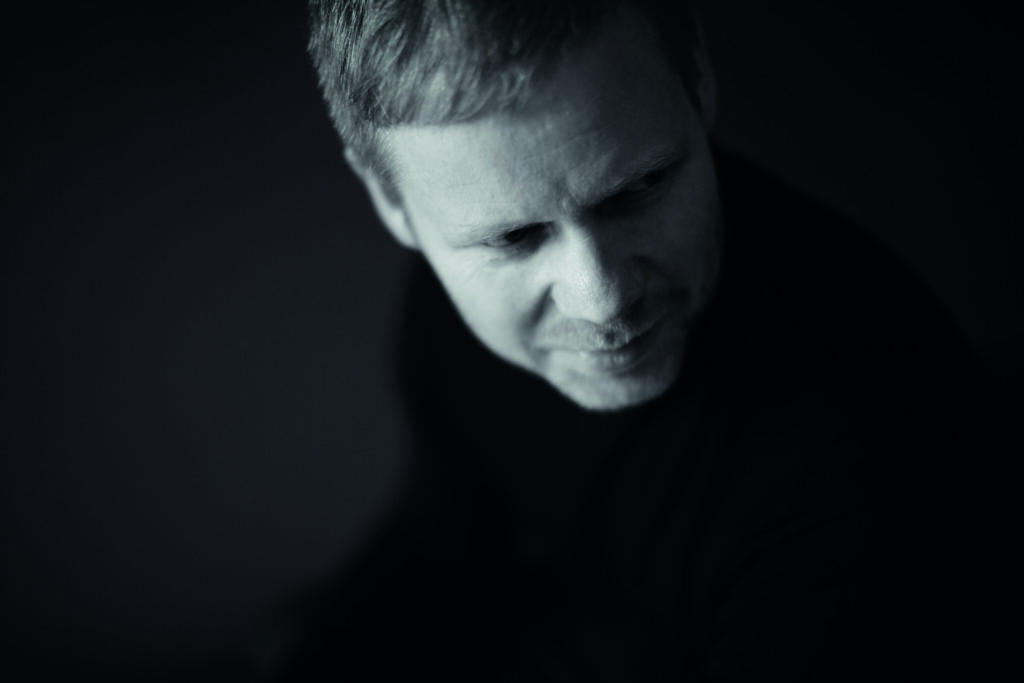
“I’d been working in both electronica and contemporary classical music for years and I’d been wanting to find a hybrid language to encompass all my enthusiasms and find relationships where they could speak fruitfully to one another. At that time, the Royal Academy Of Music saw academic and electronic music as completely different things, but I felt there was a natural set of connections which hadn’t been explored. My own work always occupied both spaces. My conservatoire training and my parallel life as a synth noodler and synth builder with a soldering iron pointed to this shared space. That struck me as my natural voice and ‘The Blue Notebooks’ is really the second part of my effort to find that voice.
“My debut solo album ‘Memoryhouse’ was the first part. It has all these elements – orchestral, instrumental, electronica, found sounds, text – and all these things co-existed. ‘Memoryhouse’ came out in 2002 [on the BBC’s short-lived Late Junction label] and like everyone who makes an album I assumed that someone might listen to it, which was wrong! There was no advertising, no reviews, no performances and then they closed the label and deleted it a year later!
“For me, music is a way of talking, it’s a storytelling medium. It seemed quite natural to include spoken word. I wanted a woman’s voice and thought, ‘Who would be my first choice in the universe if I had limitless resources?’ and I immediately thought of Tilda Swinton. What was extraordinary was that John Byrne [Tilda’s then-partner] was one of the 11 or so people who had actually heard ‘Memoryhouse’. So she agreed to do it and we recorded her texts in an afternoon. I think we offered her pretty much my entire advance, which was abysmal anyway, so for her it was practically done for free. And once I put the music together with her audio, they started to talk to one another, which was really exciting.
“Both the Kafka and Miłosz texts are rooted in their time. Kafka is there as the existential voice, the patron saint of doubt, and Miłosz is more to do with the political sphere. He’s writing about the Second World War, but the build up to Iraq and the counter-factual narrative around that struck me as very appropriate. I went on the Stop The War march in February 2003, just a few weeks before recording. We live in an unjust world. I’ve always felt that making art is a social act, as it impacts on people. That’s how I see this idea of quiet protest, which is what this album is really about. I also encountered violence in my childhood and I suppose making music is one way to build a parallel universe – a wish for how the world should be. That’s part of what sets the emotional texture of the record. For me, the personal and political inevitably join up.
“To me, it’s a protest record, in the tradition of the great protest songs of the 1960s. Its genesis lies in that sense of politics moving beyond facts, with the Iraq WMD scandal, and in the way we’ve seen that explode to a whole new level. That’s why I thought we should revisit it in 2018.
“It connects with my previous work too. It’s built around Renaissance musical practice. It uses counterpoint in the way that a 16th century composer might. It also quotes the main theme from ‘Memoryhouse’. I wanted to make that connection very explicit. And it has the idea of the studio as the instrument. The cello playing the lowest part on ‘Shadow Journal’ is one of a handful of Stradivarius cellos in the world. A friend of mine from the Academy had just been lent the instrument, so he brought it along to the session.
“We recorded it on two-inch 16-track, which is perhaps the best format, via an MCI desk which was used for the later Bob Marley records. We embarked on a very nerdy production process, which is very much my world, with a Moog doubling at the low end of the track, which is why it sounds so fat and analogue. I just wanted the bass to feel incredibly deep and earthquake-like. ‘Arboretum’ was made on a very primitive drumbox, possibly a Dr Rhythm, which I then trashed further. I’m really interested in the idea of having a pulse instead of a beat.
“I recorded atmosphere for ‘Old Song’ from the Abney Park Cemetery in Stoke Newington where I lived at the time. The title refers to a Schumann song, but without the vocal part. The song talks about a lover who’s gone away so I thought I’d take the person singing away. It’s an accompaniment to a song that’s disappeared.
“We also did the strings for the entire record in three hours, partly because we had no budget, but I wanted to make a snapshot. Like a Polaroid, it’s very tactile and very much of that moment.
“I signed to Fat Cat because I’d heard things they’d released like the first Sigur Rós record. I could hear a storytelling grammar in their work. I thought, ‘Oh I get this. It’s Arvo Pärt with guitars’. So I felt there was a space where my work could fit.
“They had a strong feeling that I shouldn’t include the spoken word texts. I said, ‘I’m sorry, but I can’t do that’ and they just said, ‘That’s fine. We’ll put it out how you want it’. That was pretty decent of them, when you consider that I wasn’t really known at that point.
“The music’s use in ‘Arrival’ was quite complicated. I knew Jóhann Jóhannsson was scoring the film, so I had to email him about it. He felt that the best thing to do was to just use it. I did wonder if it featuring in such a big film would hijack the piece’s story, so I was doubtful about allowing it. I had a phone call with Denis Villeneuve about how it would fit into the film. The film’s palindromic time structure is echoed in my piece too, so it all made sense in the end.
“When I wrote the piece I really did assume that no one would hear it. And here I am 15 years later, having performed it at the Albert Hall, and in the incredibly fortunate position of being able to compose for a living, largely thanks to this record.”
The 15th anniversary expanded edition of ‘The Blue Notebooks’ is out on Deutsche Grammophon
